How to Start an Individual Wellness Program for First Responders and Veterans
Discover how to create a comprehensive wellness program tailored to the unique needs of first responders and veterans, ensuring their physical and...
4 min read
 Chris Smetana, AS, FP-C, CCP-C, NRP | Founder/President
:
Feb 12, 2025
Chris Smetana, AS, FP-C, CCP-C, NRP | Founder/President
:
Feb 12, 2025
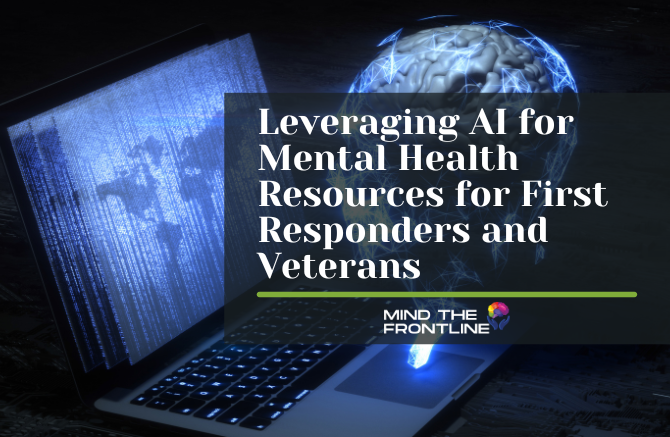
Harnessing the power of AI to transform mental health support for first responders and veterans.
First responders and veterans face unique and severe mental health challenges due to the nature of their work. The high-stress environments, exposure to traumatic events, and long hours contribute significantly to issues such as PTSD, depression, and anxiety. Traditional mental health services are often overburdened, resulting in long wait times and limited access to care.
The urgency to address these mental health concerns is paramount, as untreated mental health issues can lead to severe consequences, including substance abuse, deterioration in physical health, and even suicide. Innovative solutions are needed to provide timely and effective support for these individuals.

AI-powered solutions, particularly Conversational Artificial Intelligence (CAI), are poised to revolutionize mental health care for first responders and veterans by offering innovative and accessible support systems. These advanced technologies, including Embodied Virtual Assistants and voice agents, are designed to conduct naturalistic mental health assessments remotely, which is especially beneficial for individuals who may not have easy access to traditional mental health services. By utilizing multimodality, neuro-symbolic AI, and other cutting-edge techniques, these AI systems can provide comprehensive evaluations that are both efficient and effective.
These AI agents are capable of engaging in empathetic and natural conversations, which is crucial for building trust and rapport with users. They leverage a combination of facial expressions, voice intonation, and non-verbal cues to understand and interact with users effectively, creating a more human-like interaction that can be comforting to those seeking help. Trained on extensive datasets that encompass a wide range of human emotions and responses, these AI systems can interview individuals in any language, breaking down language barriers that might otherwise hinder communication. They analyze responses with a high degree of precision, identifying potential mental health risks with increasing accuracy. This allows for early detection and intervention, which is vital in preventing the escalation of mental health issues. By providing timely and accurate assessments, AI-powered solutions can play a significant role in improving the mental health outcomes for first responders and veterans, offering them the support they need when they need it most.
One of the primary benefits of using AI for mental health support is the ability to significantly alleviate the burden on overextended mental health professionals, who often face overwhelming caseloads and limited resources. By integrating AI into mental health care, these professionals can focus more on complex cases that require human intervention, while AI handles routine assessments and monitoring. This not only enhances the efficiency of mental health services but also expands access to vital assessments for a larger population. AI agents are available 24/7, providing continuous support and allowing for broad deployment across various regions, which drastically reduces wait times that can often be a barrier to timely care.
Pilot programs have demonstrated that individuals are more likely to provide candid and honest responses to AI avatars, as these digital entities are perceived as non-judgmental and impartial. This perception encourages users to open up about their mental health struggles without fear of stigma or bias, leading to more accurate assessments and timely interventions. The AI's ability to analyze and interpret these responses with precision ensures that potential issues are identified early, allowing for prompt action that can prevent the escalation of mental health problems.
Additionally, these evaluations can be completed from the comfort of one's home, which is particularly beneficial for those who may feel anxious or uncomfortable in traditional clinical settings. This home-based approach fosters an environment conducive to open and honest disclosure, as individuals are in a familiar and safe space. The convenience of remote assessments also means that individuals who live in remote or underserved areas can access mental health support without the need for travel, further broadening the reach of these essential services.
-Feb-11-2025-08-00-23-9661-PM.png?width=401&height=262&name=Blog%20Section%20Pictures%20(1)-Feb-11-2025-08-00-23-9661-PM.png)
Despite the promising potential of AI in mental health care, there are several pitfalls and ethical considerations that must be thoroughly addressed to ensure the responsible and effective use of these technologies. One of the most critical concerns is privacy and data security. As AI systems handle sensitive mental health information, it is imperative to implement robust security measures to protect this data from breaches, unauthorized access, and misuse. This involves not only securing the data itself but also ensuring that the systems used to process and store this information are resilient against cyber threats.
Moreover, the accuracy of AI assessments is another crucial factor that requires continuous attention. These assessments must be rigorously monitored and validated to ensure they meet established clinical standards. This involves regular updates and improvements to the AI algorithms, as well as ongoing collaboration with mental health professionals to verify that the AI's evaluations are reliable and accurate.
Additionally, the potential for AI to replace human clinicians entirely raises significant ethical questions. While AI can offer efficient and scalable solutions, the quality of care must not be compromised. Human empathy and the nuanced understanding that clinicians bring to mental health treatment are irreplaceable elements that AI cannot fully replicate. Therefore, it is essential to strike a balance where AI complements human clinicians rather than replacing them, ensuring that the human touch remains a core component of mental health care. This balance will help maintain the integrity and quality of care while leveraging the benefits of AI technology.
-Feb-11-2025-08-01-10-7227-PM.png?width=401&height=262&name=Blog%20Section%20Pictures%20(2)-Feb-11-2025-08-01-10-7227-PM.png)
The future of AI in mental health care is promising, with ongoing advancements in technology and increased acceptance of AI solutions. As AI systems become more sophisticated, their ability to provide personalized and effective mental health support will continue to grow.
Collaboration between AI developers, mental health professionals, and policymakers will be crucial in ensuring that these technologies are integrated ethically and effectively. By harnessing the power of AI, we can transform mental health support for first responders and veterans, providing them with the timely and comprehensive care they deserve.
-Feb-11-2025-08-02-02-0394-PM.png?width=401&height=262&name=Blog%20Section%20Pictures%20(3)-Feb-11-2025-08-02-02-0394-PM.png)
Don't Suffer Alone!
Get your copy of Back in Service: Frontline Stories of Resilience. This collection includes stories from frontline workers and their families from across the country with each author sharing a unique story about how their career has impacted them and details on how they have grown into a rejuvenated lifestyle of resilience.
Explore many valuable First Responder Mental Health and Wellness resources on Mind the Frontline's online platform. Discover the link below to access a wide range of support and information tailored specifically for first responders.
Additional Mind the Frontline Resource's
Stay connected with Mind the Frontline on Facebook & LinkedIn.
$BI-TAPP $50 DISCOUNT OFF CODE:frontline40
Transform Peer Support in Your Agency with Mind Shield LMS
At Mind the Frontline, we’re proud to introduce Mind Shield LMS, a game-changing platform designed to empower first responder peer support programs.
Key Features:
✅ Automated Educational & Motivational Emails
✅ Streamlined Follow-Up Task Creation
✅ Comprehensive Resource Library
✅ Customizable Dashboard
Why Mind Shield LMS?
✨ Boost efficiency: Automate routine tasks and focus on meaningful support.
✨ Ensure no one is left behind: Every request is tracked and addressed.
✨ Equip your team: Provide tools and resources for effective peer support.
💻 Start Today! Request a free 30-day trial and see the impact firsthand.
📩 Get Started Now: Request More Information
Join us in prioritizing the mental health and wellness of first responders. Together, we can build stronger, more resilient teams.
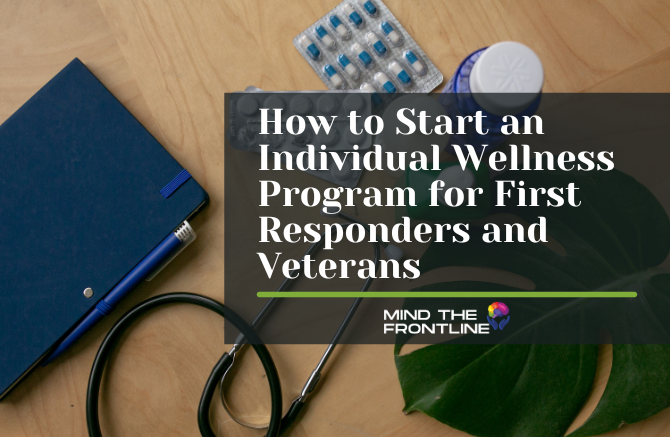
Discover how to create a comprehensive wellness program tailored to the unique needs of first responders and veterans, ensuring their physical and...
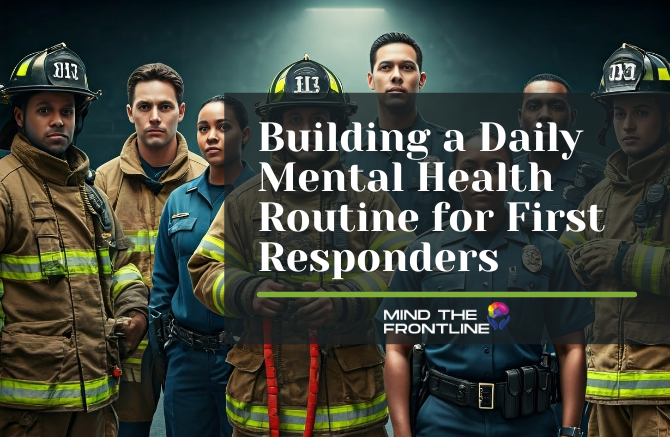
First responders face unique mental health challenges due to the nature of their jobs. Building a daily mental health routine can be a powerful tool...
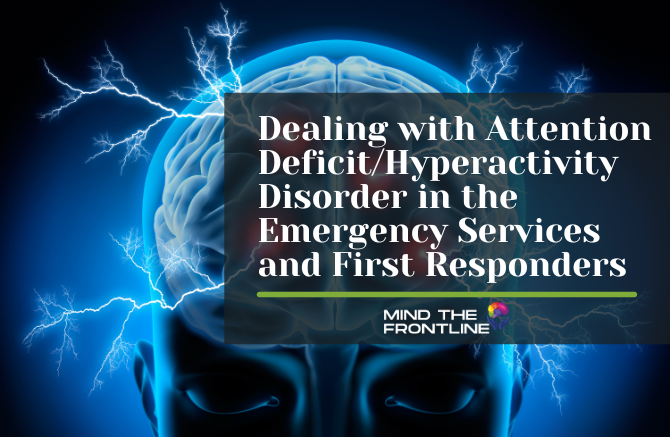
Addressing ADHD in first responders is crucial for maintaining a balanced and effective emergency service workforce.